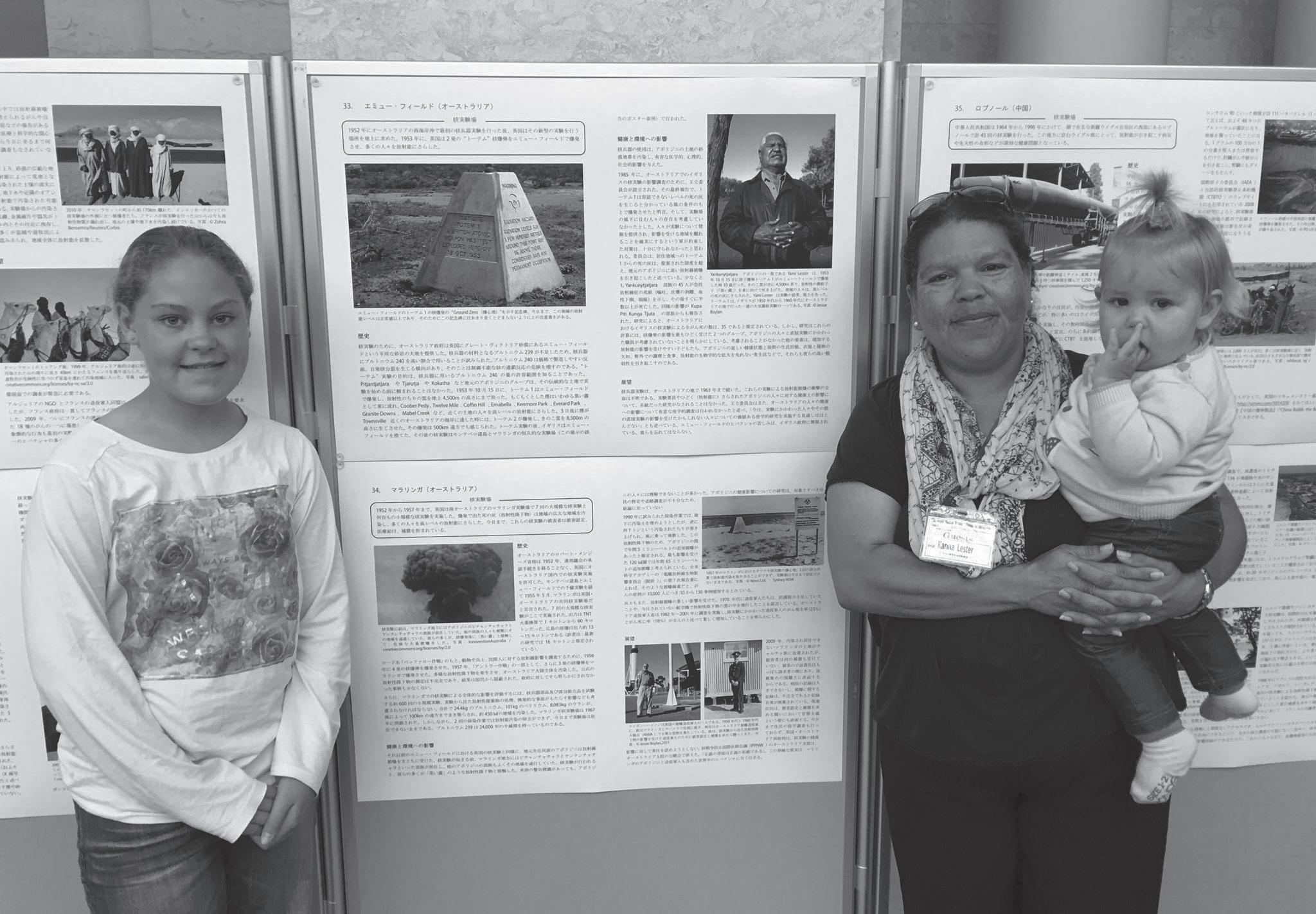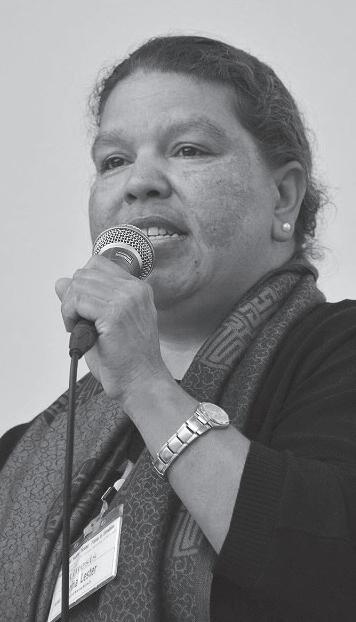
3 minute read
Inside: International victims of nuclear recognise history of SA Aboriginal people
International victims of nuclear recognise history of SA Aboriginal people
A worldwide forum to mark 70 years since the dropping of an atomic bomb on the Japanese city of Hiroshima has acknowledged a statement by Aboriginal people from South Australia.
Advertisement
Karina Lester, Chair of Yankuntjatjara Native Title Corporation and youngest daughter of Yami and Lucy Lester attended the World Nuclear Victims Forum in Hiroshima in November 2015.
At the Forum, Karina tabled a statement prepared by Aboriginal people at a meeting held in Port Augusta to discuss the Royal Commission into the Nuclear Fuel Cycle. The statement expressed South Australian Traditional Owners opposition to uranium mining, nuclear reactors and nuclear waste storage on their land.
“I was able to read the statement to the international community to get endorsement from that international community, so that was well received by the World Nuclear Victims Forum, so we have international support on this,” Ms Lester said.
“That was really amazing, it was a wonderful experience, and it was a great opportunity for me to have Anangu people represented at an international forum. I was able to go and share my Dad’s story, my Nanna’s story and also my story, in that I’m a messenger to let the wider international community know that Aboriginal people of South Australia and Aboriginal people across Australia; are victims of nuclear,” she said. Ms Lester’s father Yami Lester was impacted by tests that happened on 15 October 1953 in Emu Fields while he was living with his family in a community at Walatina. “On that day, that’s when Dad recalls the ground shaking and the black mist rolling and soon after a lot of family passed away, became very sick, violently ill, vomiting and diarrhoea and rash on their skins and sore eyes, very sore eyes and you know within our own family history you hear stories of my grandparents digging holes and burying their parents. So you know, that’s the story within our family and eventually by 1957 Dad became fully blind, so we’re reminded every day of these tests that took place and what it took away from us and that was the fact that they made Dad blind and Dad’s never seen us three children,” she said.
The forum gave Ms Lester an understanding of the number of victims of nuclear around the world.
“What I took away from it was it was so common globally and it was a global issue. We’re not the only victims in Australia, there are victims everywhere around the world.” Ms Lester and her daughters Jessie and Larissa met and heard from international victims of nuclear activities, including testing in the Nevada desert and the bombing of Hiroshima.
“We met a gentleman called “Soho” who was a “Hibakusha” you know that’s the term which is the victims from those Hiroshima tests. He was a victim and he was 75. So when that atomic bomb did hit Hiroshima he was five years of age. That was such a moving story, so you know hearing his story and knowing that he was a survivor of what took place back then, 70 years ago, and him sharing his story. The big message he said to me was to talk up for the future generations. And that’s what I’m doing“ she said.
The World Nuclear Victims Forum issued a declaration that emphasised the importance of health services for the victims of nuclear and called for the ceasing of nuclear activity around the world.
“That’s where we need to continue our fight, our struggle, our campaigning, our work that we do individually to really stand strong on this that we as victims you know because we come from that experience, it doesn’t co-exist, nuclear and human life,” said Ms Lester.

Top (L–R): Jessie, Karina and Larissa Lester; Above: Karina Lester.

